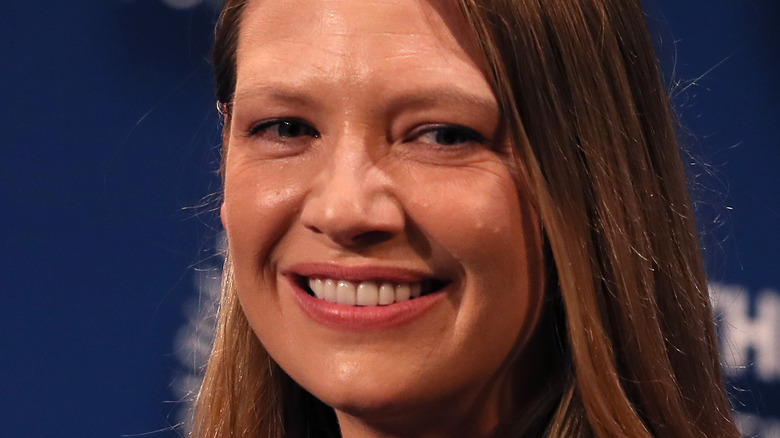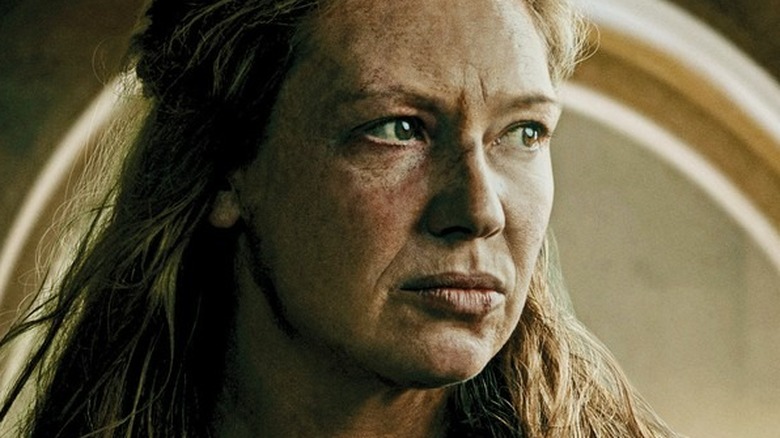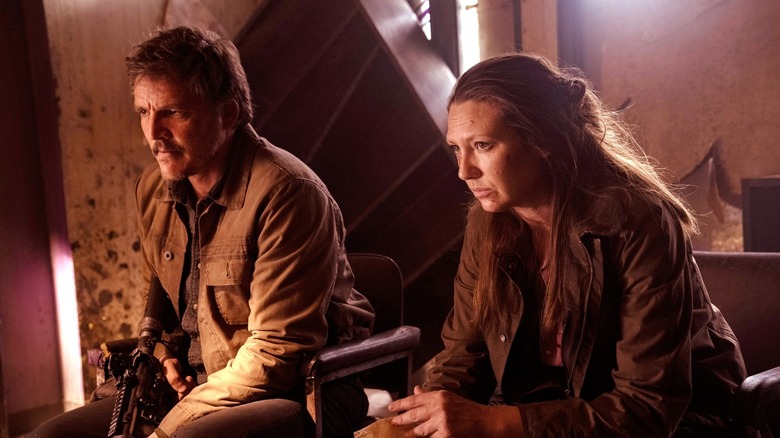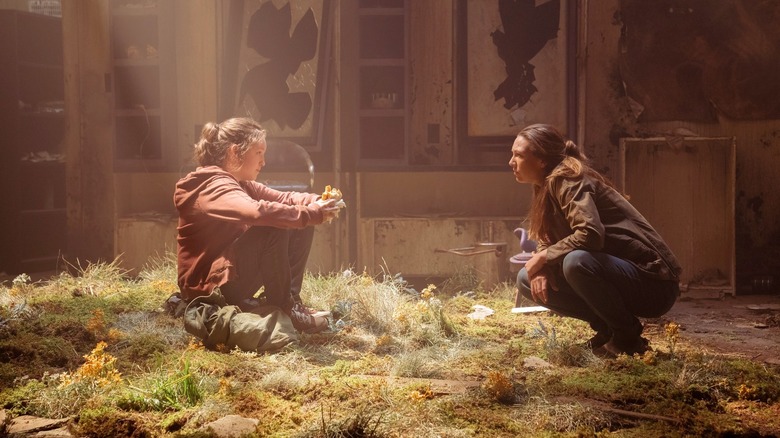The Last Of Us Star Anna Torv Details Her Intense Role As Tess On The Video Game-Turned-Series - Exclusive Interview
Although Anna Torv has already dealt with unexplainable scientific phenomena and complicated intricacies of the criminal brain with key roles in the hit shows "Fringe" and "Mindhunter," respectively, the actor has found herself on yet another wild head trip — this time with the new series "The Last of Us."
Adapted from the blockbuster 2013 video game of the same name, "The Last of Us" — which debuts on HBO and HBO Max Sunday, January 15 — combines both scientific mysteries and the perils of the rotting mind. In game creator Neil Druckmann's series, though, Torv plays Tess Servopoulos, a hardened survivalist struggling to keep out of harm's way in a society where science has run amok with the spread of a virus that infects the brains of its victims and turns them into zombie-like killers.
But there is hope of a cure for the infection — which is derived from the Cordyceps fungus — if Tess' fellow smuggler, Joel Miller (Pedro Pascal), can manage to get Ellie Williams (Bella Ramsey) out of a quarantine zone to see if the young teen's immunity to Cordyceps may be the key to creating a vaccine. Tess, like in the video game version of "The Last of Us," is one of Joel's allies who is willing to risk everything to transport Ellie through the dangerous landscape. The problem is, not only is post-apocalyptic America overrun with "the Infected" — as the Cordyceps victims are dubbed — but it also faces the heavy-handed rule of what has turned into a brutal totalitarian government in the wake of a societal breakdown.
In an exclusive interview with Looper, Torv detailed the differences between "The Last of Us" game and the series adaptation, how she, Pascal, and Ramsey dealt with the intensity of shoot, and the series' spooky parallels to the COVID-19 pandemic.
'Tess is Tess,' Torv says in comparing the character in the game to the series
This must be a decidedly different turn for you because the role or the part of Tess originated in the video game realm. Were you familiar with the video game coming in, or did you have to go through some sort of video game boot camp to learn more about Tess in your preparation for the role?
Well, both. I remember when the game came out. I remember people talking about it, and I remember people talking about the fact that it was this game that had these emotional stories and characters. I also remember wanting to look at it because I had actually done a game ages ago with motion capture ["Heavenly Sword"], and I wanted to see ["The Last of Us"] at that point. The technology had improved so much, so I was curious to see what that looked like. I remember seeing the trailer back in the day, but I didn't play it.
When I got cast, I read the scripts and then went back and watched all of the cut scenes, particularly all of Tess' stuff. I then went to Craig [Mazin], who was our co-creator, and said, "What are you wanting? Are you wanting this to be an interpretation or are you wanting this to be ... How closely do I need to stick to what the game is?" He's like, "No, it's going to be an interpretation."
But with any good story and well-drawn character, you'll end up sticking pretty close to it, because that's the story and that's who you're playing. That stuff, it's based on the game. The story is the same. The character is the same. Different actors are coming in to do different jobs, but ultimately, Tess is Tess.
Torv says giggles helped break the tension on set
The scenes with Tess and Pedro Pascal are all intense. How did you lighten the mood in between takes?
We got the giggles. Pedro, Bella [Ramsey], and I all got on, so we would laugh a lot. We would shoot other s*** and laugh a lot ... That often happens when you're doing something serious, because all we are doing is constantly, "Ugh, I'm afraid of this." Once it's all very, very serious, we would get the giggles when it was all too much. That was our way of coping — to the dismay of the crew.
Now, this is not something to giggle about and I'm not going to spoil any details, but there is a key scene of yours involving a kiss. It's easily one of the most disgusting kiss scenes I've seen on screen, and I'm sure it's probably one of the most disgusting kiss scenes that you've ever filmed. Was that done with practical effects or a little bit of movie magic? Because it was a big gross-out!
No, that was all done in post, thank God! They kept trying to explain what it was going to be and I wasn't quite sure. [With] that whole scene, too, when I read it, I thought it was going to be a very different thing. I'm like, "Oh, it's gross!"
Once fears, now reality
Having been through the pandemic with COVID-19, do you think viewers are going to look at "The Last of Us" differently than, say, in 2013, when the original game came out, or maybe even 2019? It's amazing how much the world has changed in the last few years. This whole idea of this pandemic didn't seem like anything to worry about before, but all of the sudden, it does.
Of course. You look at things differently always because of your own experience. Something that was really interesting when we were shooting it is that we weren't obviously in the middle of the pandemic. We were in Canada, in Calgary, and we were there when your vaccine passports came out. But in order to go to a café or a shop, we were getting tested three times a week in order to go to work. Everyone was in masks, and I needed permission to leave the country.
You go, "Gosh, we, as humans, really do learn to adapt very, very quickly." That was interesting because you watch this apocalyptic stuff and you think, "God, what is the point? What is the point of life? What are they doing if they don't believe in a cure?" Then you go, "Well, that's because we are programmed to do that, to survive." We adapt, and Ellie doesn't know any different.
Also starring Nico Parker, Nick Offerman, Murray Bartlett, and Merle Dandridge, "The Last of Us" premieres Sunday, January 15, on HBO and HBO Max, with new episodes debuting every Sunday through March 12.
This interview was edited for clarity.



